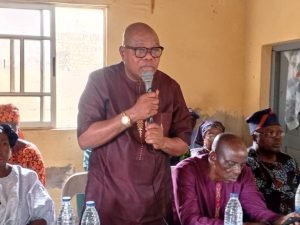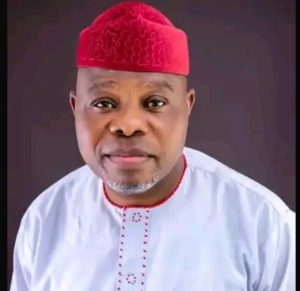NELFUND: A New Dawn in Nigeria’s Tertiary Education

By Editorial Team
For many years, the dream of higher education in Nigeria was cut short for millions of young people, not because of poor academic performance, but simply because there was no money to pay school fees. From Lagos to Kano, Port Harcourt to Sokoto, countless brilliant minds dropped out after secondary school. Families were helpless, students were hopeless, and the nation kept losing talents that could have built industries, hospitals, and schools.
Today, under the leadership of President Bola Ahmed Tinubu, that painful story is changing. With the establishment of the Nigeria Education Loan Fund (NELFUND), a new door has been opened. Students across the nation can now access loans to pay their school fees and also enjoy a monthly upkeep allowance of ₦20,000. This is more than policy, it is hope restored, a chance for millions to rewrite their destiny.
Why This Policy Matters
Before now, students who had no parents or wealthy guardians had to struggle on their own. Some became motorcycle riders (Okada), some carried cement and bricks at construction sites, while others engaged in street hawking to raise money for fees. Many young women were driven into prostitution, not out of choice, but as a desperate survival strategy. These struggles affected their academics, destroyed their focus, and in some cases, put their lives in danger.
The new loan scheme now says: “No more.” With fees taken care of and a steady monthly upkeep allowance, students can concentrate on their books without distraction. This is not just about education; it is about dignity, safety, and the future of Nigeria.
No More Fear of Immediate Repayment
One of the best features of the Tinubu students loan is that repayment only begins when the beneficiary gets a job after graduation. This means students will not be weighed down with the fear of debt while still in school. Parents too can breathe easy knowing that their children will not be harassed by creditors.
This type of policy is what developed countries like the United States and United Kingdom have used for decades. By adopting it in Nigeria, President Tinubu is putting the country on the path of global best practice. The pressure is off, and the focus is back on learning.
Concentration on Academics, Not Survival
The ₦20,000 monthly upkeep allowance is not just money—it is a lifeline. In a country where transportation, feeding, and basic daily needs have become expensive, this allowance will prevent students from wasting precious study hours on menial jobs.
Now, instead of carrying blocks, washing cars, or running errands, students can sit in lecture halls, spend time in the library, or work on research projects. Nigeria has always produced intelligent youths, but poverty was the chain holding them down. With this policy, the chain is broken.
Public Sensitization Is Key
Good policies can fail if people are not aware of them. That is why the National Orientation Agency (NOA) must partner with NELFUND to carry out nationwide campaigns. They must go to churches, mosques, markets, bus parks, and villages to educate Nigerians about this opportunity.
Not everyone reads newspapers or follows government websites. The campaign must therefore be grassroots, reaching the ordinary man and woman who may have children at home waiting for a chance to return to school.
Media Engagement and Social Platforms
Beyond physical campaigns, NELFUND must take advantage of Nigeria’s vibrant media space. Weekly programmes should be aired on television and radio stations, explaining the loan process and guidelines in simple terms.
Social media must not be left behind. Platforms like Facebook, Instagram, TikTok, and X (Twitter) can carry short videos and live sessions to answer questions from the public. Students are the largest users of social media in Nigeria, so it makes sense to take the message directly to them.
Transparency and Accountability Are Non-Negotiable
Every Nigerian knows the danger of corruption. If this laudable programme is mismanaged, it will collapse before it achieves its purpose. NELFUND must therefore run an open book system where every kobo is accounted for. Regular reports should be published, and independent auditors must be engaged to verify the funds.
Funds meant for education should not be misappropriated, diverted, or embezzled. The survival of this policy depends on trust, and once trust is broken, the programme will fail. Nigerians are watching, and NELFUND must prove that this time, things will be different.
School Authorities Must Not Sabotage the Policy
Reports have surfaced in the past of some schools shortchanging students—collecting illegal levies, deducting funds, and inflating charges. Such practices must stop immediately. If school authorities are not transparent, the reason for establishing NELFUND will be defeated.
The Federal Government must set up a monitoring committee that will ensure universities, polytechnics, and colleges of education comply with the rules. Any institution found guilty of cheating students must face stiff penalties. Education is too important to be left in the hands of greedy administrators.
Responsibility of the Students
Students too have a role to play. They must not see this loan as free money or a share of the national cake. It is not a gift; it is an investment in their future. When they graduate and secure employment, they must repay so that other students coming behind them can also benefit.
Sustainability is key. If beneficiaries refuse to repay, the fund will dry up, and the entire policy will collapse. The success of this programme depends on the honesty and patriotism of Nigerian students. This is not about politics or party, it is about building a future where no child is denied education because of poverty.
Stakeholders Must Work Together
For NELFUND to succeed, all stakeholders must work together, the Federal Government, NOA, NELFUND officials, school authorities, civil society groups, parents, and students. It is a joint responsibility.
Education is the foundation of national development. No nation can grow beyond the quality of its human capital. If Nigeria truly wants to compete with developed countries, then her youths must be educated, skilled, and empowered. This policy is a bold step in that direction.
A Policy Worth Sustaining
President Bola Ahmed Tinubu has written his name in the history of Nigeria’s education sector with the establishment of NELFUND. For the first time, Nigerian students from poor homes can dream of attending university without fear of dropping out. The policy has restored hope, dignity, and opportunity.
But the journey has only begun. Transparency, sensitization, accountability, and responsibility are necessary for sustainability. The government has done its part by creating the platform. Now it is left for all Nigerians to protect and nurture it.
The era of stopping school at secondary level because of poverty is gone. A new era has begun, an era where every Nigerian child can dream, learn, and achieve. That is the true meaning of national progress.








A good and welcoming ideology to develop Nigeria humanitarian resources for future advancement